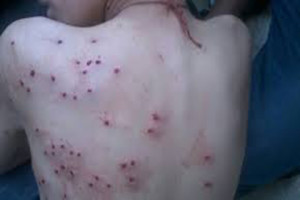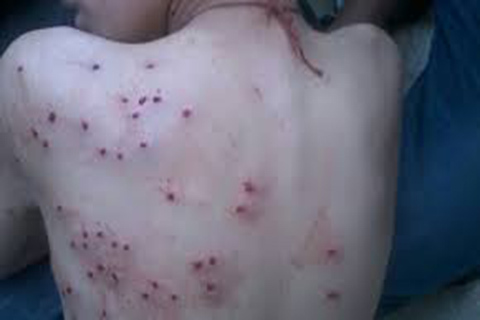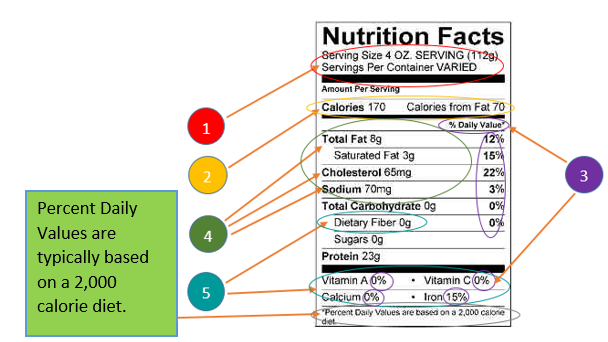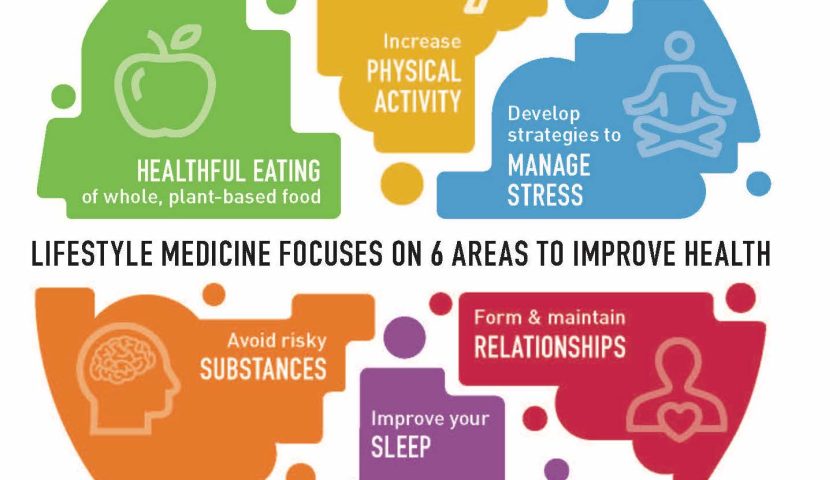A number of youth hit by pellets during street protests in Kashmir avoid getting treated in Valley hospitals to evade arrests and persecution by police, medicos said on Saturday.
 Doctors at SK Institute of Medical Sciences (SKIMS) and SMHS hospital here, who insisted not to be identified, said they treat “only a few victims of pellet guns because most of the victims go for treatment elsewhere, mostly outside the Valley, to evade arrests by police and the subsequent persecution.”
Doctors at SK Institute of Medical Sciences (SKIMS) and SMHS hospital here, who insisted not to be identified, said they treat “only a few victims of pellet guns because most of the victims go for treatment elsewhere, mostly outside the Valley, to evade arrests by police and the subsequent persecution.”
Informed sources told that three youth with pellet injured were ‘seen’ by doctors at SMHS hospital in Srinagar on Wednesday, but two of them left the hospital against medical advice. This, they said, is because the victims “didn’t want to be arrested by policemen who take details of such cases later.”
“On a single day when protests and clashes take place, we receive two youth with grave injuries in eyes inflicted by the pellet guns,” said a doctor at SMHS hospital.
He said many such victims just visit the hospital “for advice and first-aid and then go for advanced treatment outside the State.”
“If they remain in the Valley and turn up at city hospitals for check-ups, police hounds them,” the doctor said on the condition of anonymity.
Saying they were not authorized to speak to press, doctors at SMHS Hospital here refused to comment on the number of patients with pellet injuries whom they examine initially and then don’t see them during necessary follow-ups. They however acknowledged that “patients are getting treated elsewhere.”
Dr Tariq Qureshi, Head of the Ophthalmology department at SMHS Hospital, said they have been “seriously trying to spread awareness about all facilities at the hospital for treating pellet injuries.” But, he said: “A lot of people go outside J&K to places like Amritsar, Jallandhar and Indore for treatment.”
He however refused to comment on why this precisely happens. Doctors also said that many youth with sling-shot injuries in faces or eyes are also seen by them. “These (shots) are quite lethal and cause ocular fractures,” a doctor said, referring to injuries caused by stones pelted using slings. Forces have been—apart from using pellets and teargas shells—using sling shots to shoot stones at protesters.
On Wednesday, doctors at SMHS hospital said, many such cases were reported from Srinagar.
A boy, 16, from Nawakadal here was operated upon at SMHS Hospital after pellets perforated his abdomen. His hospital file reads that pellets pierced his “wall of gut, jejunum, transverse colon and descending colon.” “He had three pellets in jejunum,” it read.
Medicos said this year about 40 people have been treated at SMHS Hospital for pellet injuries in eyes, though PDP president Mehbooba Mufti said she was “not aware if pellet guns are used in Srinagar”—a comment that many observers termed as “bizarre.”
“These people will never get their normal vision back. In many cases, pellets will cause permanent blindness,” Dr. Qureshi told.
A senior doctor at SKIMS said pellet injuries are “quite serious as pellet gun fires about 500 small but sharp, high-velocity spheres that can cause grievous injury especially if these hit delicate and vital organs.”
He said it is commonly seen by medicos that people are mostly hit by pellets in faces.
A study carried out at SKIMS in 2014 notes that “52.17% of the eyes had only perception of light (PL+) at the time of presentation in the hospital, reflecting the severe nature of trauma caused by gun pellets.’
The study titled ‘Pattern of Ocular Injuries in Kashmir’ concluded that ‘gun pellet ocular injuries were cause of avoidable blindness in nearly half of the study population in Kashmir Valley, affecting mostly young adult males.’
In the past too, a 2012 article published in Turkish Journal of Trauma and Emergency Surgery reported six deaths out of the 198 studied due to the pellet injuries. It also put on record that 54 percent patients required an operation for the injury.
A doctor said, “No one is being held accountable for the numerous lifelong disabilities being inflicted on people due to use of pellet guns.”
He said the government needs to change the category under which pellet guns are put. “These are not non-lethal weapons by any means. Ample evidence is there to prove this,” he said.






